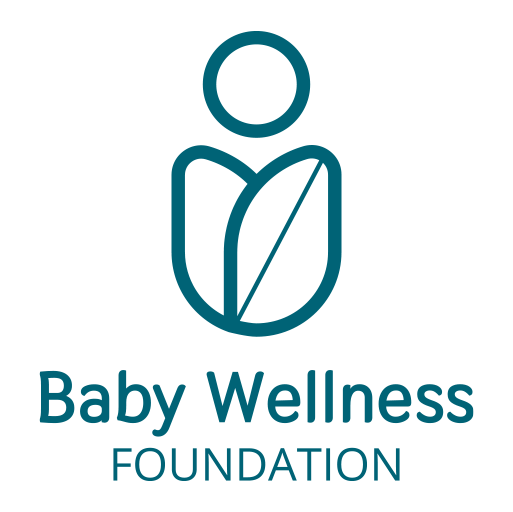La salute, il bene più prezioso
Capitolo 4 - Vitamine e sali minerali
Il latte della mamma ha tutto quel che serve per soddisfare le esigenze nutrizionali del bambino nei primi mesi di vita, ma in tempi moderni sono state identificate due condizioni di potenziale pericolo per la salute a cui possono andare incontro i più piccoli, legate alla carenza di due vitamine. Integrandole, si previene il rischio.
La prima è la vitamina K, prodotta dai batteri della flora intestinale, che ha un ruolo fondamentale nel meccanismo di coagulazione del sangue. Durante la gravidanza, il nascituro la riceve dall’organismo della mamma seppur in piccole quantità poichè la placenta è scarsamente permeabile alla molecola. Inoltre, per alcune settimane, il neonato produce quantità ridotte di vitamina K perché la sua flora intestinale è ancora immatura.
La sua carenza può determinare piccole emorragie a livello dell’intestino, delle vie urinarie e, ancor peggio, a livello cerebrale: è la cosiddetta malattia emorragica da deficit di vitamina K, che può presentarsi in forma precoce nei primi 2-3 giorni di vita o in forma tardiva tra la seconda e la 12° settimana. È un’eventualità rara, ma che non si può escludere. Per prevenire la forma precoce di malattia emorragica e ridurre in modo significativo il rischio della forma tardiva, ad ogni bambino in Italia viene somministrato, subito dopo la nascita, per via iniettiva 1 mg di vitamina K. Alcuni Paesi scelgono dosaggi e modi di somministrare la vitamina differenti (a volte viene prescritto un integratore orale da assumere durante le prime 14 settimane di vita) (7)
La seconda integrazione raccomandata a tutti i bambini è quella di vitamina D. È presente in piccole quantità in alcuni alimenti, ma viene per lo più prodotta dalla pelle esposta ai raggi solari. I suoi molteplici ruoli nell’organismo sono ancora oggetto di studio (8). Di certo essa concorre allo sviluppo delle difese immunitarie ed è un elemento fondamentale per la fissazione del calcio nelle ossa; un suo grave deficit ostacolerebbe seriamente lo sviluppo scheletrico del bambino.
In Italia i casi di carenza grave di vitamina D sono rari, perché il nostro clima garantisce un’adeguata insolazione per buona parte dell’anno. Tuttavia, la raccomandazione di non esporre troppo i bambini alla luce diretta dei raggi solari e l’abitudine nella società moderna di trascorrere gran parte del tempo al chiuso, ha fatto registrare, negli ultimi anni, un significativo incremento di carenza lieve di vitamina D nel 50% della popolazione pediatrica.
Gli specialisti raccomandano quindi di somministrare a tutti i bambini, dalla nascita fino al compimento del primo anno, una dose quotidiana di 400 UI di vitamina D, sotto forma di gocce per via orale, a meno che il piccolo non assuma già alimenti fortificati con vitamina D, nel qual caso è opportuno confrontarsi con il pediatra per evitare un sovradosaggio nocivo (9).
Iscriviti alla newsletter
Riceverai per prima le ultime novità dalla Baby Wellness Foundation!
A seconda di particolari necessità, il pediatra potrà prescrivere altri tipi di integratori. I bambini che non vengono allattati al seno, per esempio, possono trarre giovamento da un supplemento di probiotici, per favorire il mantenimento di una ricca flora batterica, e di Dha, acidi grassi necessari per lo sviluppo del sistema nervoso di cui abbonda il latte materno. Ai piccoli allattati al seno, invece, viene prescritta talvolta un’integrazione di ferro.
Infine, a partire dall’eruzione del primo dentino da latte intorno ai 6 mesi, l’Organizzazione Mondiale della Sanità (OMS) raccomanda la fluoroprofilassi, ovvero la supplementazione di fluoro, un minerale che rinforza lo smalto dei denti e previene l’insorgenza di carie nel bambino. Il consiglio dell’OMS è quello di utilizzare un dentifricio al fluoro specifico per l’età del bambino e fino ai 13 anni, per almeno due volte al giorno, impiegandone ogni volta una piccola quantità, delle dimensioni di un pisello (10). Il dentifricio è molto più efficace delle gocce al fluoro che talvolta vengono raccomandate, poiché agisce direttamente sui denti.
(7) R. M. Puckett, M. Offringa, “Prophylactic vitamin K for vitamin K deficiency bleeding in neonates”, Cochrane Database of Systematic Reviews 4 (2000) n. CD002776
(8) C. L. Wagner et al, “Prevention of Rickets and Vitamin D Deficiency in Infants, Children, and Adolescents”, Pediatrics 122 (2008) pp 1142-1152
(9) “Vitamin D in children”, Consensus of the Italian Society of Preventive and Social Paediatrics, Italian Society of Paediatrics, Italian Federation of Paediatricians, Proceedings of the 27th National Congress of SIPPS, 2015
(10) “National Guidelines for the Promotion of Oral Health and Prevention of Oral Diseases in Children”, Ministry of Health, updated in 2013
Leggi le opinioni di...
Leggi le opinioni su questo articolo da parte di fonti autorevoli in campo scientifico o di aziende specializzate.

No comment yet, add your voice below!